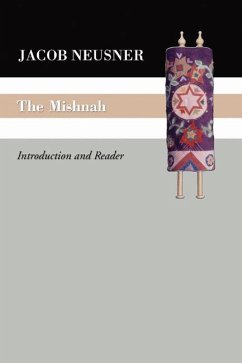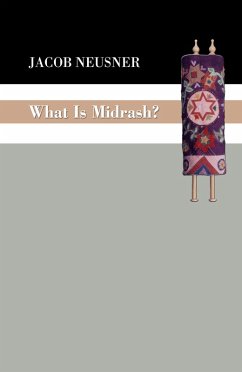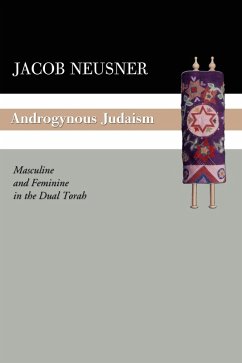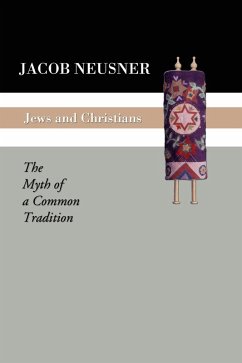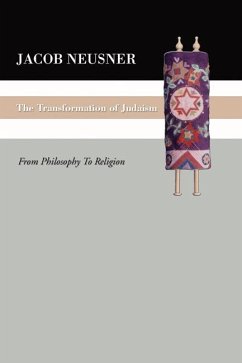
The Transformation of Judaism (eBook, PDF)
From Philosophy to Religion
Versandkostenfrei!
Sofort per Download lieferbar
20,95 €
inkl. MwSt.
Weitere Ausgaben:

PAYBACK Punkte
10 °P sammeln!
An eminent scholar of the history of Judaism, Jacob Neusner shows in this work how Judaism changed from a philosophy to a religion between 200 and 400 C.E. 'The Transformation of Judaism' is a work both revolutionary in its method and unprecedented in its results. Comparing earlier and later sets of Judaic writings, Neusner sets forth how philosophy - abstract, elegant, orderly, and intellectual - turned into religion - tangible, down-to-earth, chaotic, and concrete. In the process, he offers an account of the birth of Judaism that has become normative. Moreover, Neusner's methodology can be a...
An eminent scholar of the history of Judaism, Jacob Neusner shows in this work how Judaism changed from a philosophy to a religion between 200 and 400 C.E. 'The Transformation of Judaism' is a work both revolutionary in its method and unprecedented in its results. Comparing earlier and later sets of Judaic writings, Neusner sets forth how philosophy - abstract, elegant, orderly, and intellectual - turned into religion - tangible, down-to-earth, chaotic, and concrete. In the process, he offers an account of the birth of Judaism that has become normative. Moreover, Neusner's methodology can be applied to the study of religions other than Judaism because it examines the underpinnings of how a society sees the world (philosophy), orders itself (politics), and sustains itself (economics).
Dieser Download kann aus rechtlichen Gründen nur mit Rechnungsadresse in A, D ausgeliefert werden.





